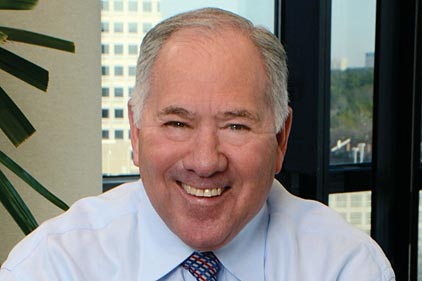As a teenager, Brandon Coats was paralyzed in a car accident. When medical marijuana became legal in Colorado, Coats received a prescription to help with his medical issues. After failing a random workplace drug test, Coats was fired from his job as a phone operator with Dish Network.
Coats sued. In a 2-1 decision, the Colorado Court of Appeals upheld the firing, citing federal law that bans marijuana use. The closely-watched case has been appealed to the Colorado Supreme Court.
For many employers, a zero-tolerance approach to drug use and random drug testing helps to ensure a safe, productive work environment. Yet more states are legalizing medical marijuana, and recreational use is legal in two others. A tangle of federal laws adds to the confusion. Being aware of the legal issues involved and the changing legal landscape is important for employers to ensure that their drug testing policies are legal and enforceable.
The Growing Marijuana Boom
It recent years, medical marijuana has gained significant steam. It has been considered as a potential treatment for many conditions, such as chronic skin disorders and cancer-related weakness and weight loss. According to the Mayo Clinic, “The most significant benefits have been seen in the treatment of chronic pain and multiple sclerosis.”
In light of the research, states have begun to increasingly embrace the legalization of medical marijuana. Twenty states and the District of Columbia have laws of some type that legalize medical use of marijuana: Alaska, Arizona, California, Colorado, Connecticut, Delaware, Hawaii, Illinois, Maine, Massachusetts, Michigan, Montana, Nevada, New Hampshire, New Jersey, New Mexico, Oregon, Rhode Island, Vermont, and Washington, according to the National Conference of State Legislatures. Others are considering legislation, and, to top it off, Washington State and Colorado have legalized marijuana for recreational use.
State laws for medicinal uses vary significantly. Some states require patients to register, others don’t allow dispensaries, and not all of them recognize marijuana-approved patients from other states. Recreational use is also highly regulated.
Among the states that allow marijuana, some have explicit laws that can limit an employers’ right to discipline or fire workers who use it. For example, Delaware’s Medical Marijuana Act stipulates that “Unless a failure to do so would cause the employer to lose a monetary or licensing-related benefit under federal law or federal regulations, an employer may not discriminate against a person . . . if the discrimination is based upon either of the following: (a) The person's status as a [medical marijuana] cardholder; or (b) A registered qualifying patient's positive drug test for marijuana components or metabolites, unless the patient used, possessed, or was impaired by marijuana on the premises of the place of employment or during the hours of employment.”
Despite changes at the state level, the federal government still classifies marijuana as a Schedule I substance under the Controlled Substances Act. In a December 29 memo to all U.S. attorneys, the U.S. Department of Justice reiterated that it is committed to enforcing the act. However, the memo acknowledged that prosecuting marijuana users is not necessarily high on its to-do list.
“The department is also committed to using its limited investigative and prosecutorial resources to address the most significant threats in the most effective, consistent, and rational way,” the memo by Deputy Attorney General James M. Cole stated. “In furtherance of these objectives, as several states enacted laws relating to the use of marijuana for medical purposes, the department in recent years has focused its efforts on certain enforcement priorities that are particularly important to the federal government[.]” Those priorities include preventing the distribution of marijuana to minors and preventing profits from marijuana sales from going to criminal enterprises, gangs, and cartels, among others.
Other federal laws specifically forbid medical marijuana use. The U.S. Department of Transportation’s Drug and Alcohol Testing Regulation does not recognize legal medical marijuana “to be a valid medical explanation for a transportation employee’s positive drug test result.”
To further add to the confusion, under the Americans with Disabilities Act, employers are required to make a “reasonable accommodation” to employees with disabilities, which can present murky areas when workers have a doctor’s note that allows them to use marijuana.
The Coats Case
When laws conflict, employers and their legal counsel look to court rulings for clarification. Since the boom in legalized medical marijuana began recently, lawsuits are only now beginning to work their way through the system. That’s one reason Coats v. Dish Network has been watched so closely.
By all accounts, Coats had a good employment record when he failed a random drug test in 2010. Despite his claims that he only used marijuana within the limits he was prescribed, never used it at work, and was never under the influence while he was working, Dish Network fired Coats, citing its zero-tolerance drug policy. After his termination, Coats sued, claiming that his firing violated Colorado’s Lawful Activities Statute, which prohibits employers from firing workers who engage in “any lawful activity off the premises of the employer during non-working hours.” The trial court granted Dish Network’s motion to dismiss the case, ruling that medical marijuana was not a “lawful activity” under state law. According to the court, Colorado’s medical marijuana law did not establish a right to use medical marijuana, but instead created a defense for those being prosecuted for using it.
Coats appealed, arguing that while medical marijuana is illegal under federal law, his activity was lawful since the statute only refers to state law.
The Colorado appeals court agreed with the trial court, ruling that the state law was prohibited by federal law and that Coats’s marijuana wasn’t a lawful activity. “However, while we agree that the general purpose of [the law] is to keep an employer’s proverbial nose out of an employee’s off-site off-hours business, we can find no legislative intent to extend employment protection to those engaged in activities that violate federal law,” wrote Chief Judge Janice B. Davidson.
The case is currently pending before the Colorado Supreme Court.
Next Steps for Employers
With the range of conflicting laws on the books across the country, employers should understand the risks and challenges that employees’ use of marijuana can cause before considering how to respond.
• Look at the company’s specific situation.
Companies in some industries, such as those regulated by the U.S. Department of Transportation, must maintain a zero-tolerance approach to marijuana use. Others with federal contracts also must abide by the laws that treat marijuana as an illegal drug.
The laws in individual states should be carefully reviewed. Companies in states that allow recreational marijuana use face different considerations than those where marijuana is completely illegal.
• Review and update company policies.
Since so many states now allow, or are considering allowing, marijuana usage, employers should take the opportunity to review their current drug and testing policies and update them if necessary. This is particularly important when companies have offices in states that specifically provide employment protections for those with prescriptions for marijuana.
For some companies, it may make sense to eliminate random drug testing completely and focus on developing procedures for addressing situations when employees appear impaired or cannot fulfill their job responsibilities. Unlike alcohol and some drugs, marijuana can stay in the system for a long time. So workers who fail drug tests often try to argue that their marijuana use took place weeks ago and far away from their jobs.
Before making any changes to policies, companies should involve a cross-functional team that involves legal counsel and human resources. This will ensure that policies are legal, defensible, and workable.
• Regularly train and educate.
Whatever approach they adopt, companies need to clearly convey their views on drug usage to their managers, supervisors, and employees. Employees should be regularly educated about the company’s drug and testing policies. Managers and supervisors must be trained on how to recognize and respond when they suspect workers are using illegal drugs or are otherwise impaired at work.
• Proceed carefully when disciplining employees.
Once a worker violates the company’s drug policy through marijuana use, the company must not rush to fire or discipline the employee. In some states, failing a drug test alone is not sufficient grounds for termination. The employer may need to prove that the employee was using marijuana at work or was impaired. The company should have a clear process in place for addressing these situations. Every step must be carefully documented to provide evidence in case employees decide to challenge the termination.
It may be years before employers across the United States can look for unified, consistent laws regarding marijuana use. In the meantime, they should work closely with experts to understand what laws impact them specifically and how they should approach marijuana-related issues.
Publication date: 4/21/2014











